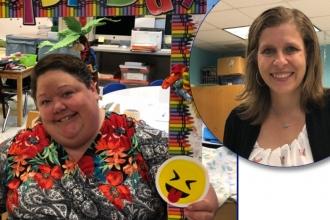Teaching
Podcasts for the classroom
Podcasts can be used as a novel way to introduce or reinforce subject matter with our students. For those of us concerned about screen time, podcasts are an antidote, and they help sharpen listening skills, too.
Confronting ‘learning loss’
As early as March 2020, headlines warned of the “learning loss” that students would experience as a result of disrupted and remote schooling. But that phrase misclassifies the real issue and obscures how teachers can best support their students.
Implementing culturally responsive education
Rather than just seeing them for what their scores say or what we unconsciously believe about them, we need to make sure that we as teachers are centering student voices and experiences in our curriculum and instruction.
Free assessment apps available
Online forms of classroom assessments can be huge timesavers for educators by providing quick data, instantly compiling student answers and even reducing the amount of grading.
What makes successful co-teaching?
Thousands of New York City public school teachers work together in Integrated Co-Teaching classrooms, in which one special education teacher and one general education teacher work alongside each other. But what are the ingredients of a successful classroom partnership?
Lessons learned from remote era
Insights about how our students learn best that were gained while working remotely will be helpful when we all return to the classroom.





